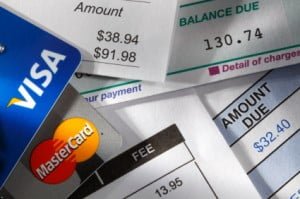After a day of shopping for new furniture at the furniture store, you come home to find that one of the tables is chipped or cracked. Or maybe you just bought a gift item from a retail store only to later find that a part of it is scratched or broken.
If you made the purchase with a credit card and the merchant isn’t willing to repair or replace the item in question, you may be able to dispute your purchase and get your money back.
Even if you made an online purchase with a credit card, you’ll be protected for your purchase and can request a refund directly through your credit card company.
Here are some important tips for disputing a credit card purchase:
1) Make an effort with the seller first.
The Fair Credit Billing Act grants consumers the right to withhold payment when they receive damaged or poor-quality merchandise with a credit card purchase, but it will only take effect after you’ve made a sincere effort to work with your lender.
In fact, if you used a credit card or a department store charge card, you do not have to pay for any goods or services that you didn’t accept, were not delivered as agreed, or were not as promised.
You need to resolve the dispute directly with the retailer, merchant or online seller before you can request your credit card issuer to post a refund. In some cases, various sellers will be willing to work with you and may offer a replacement of the item or a refund themselves.
2) File a dispute with the right department.
Some credit card companies have dedicated customer advocate centers that make it easy for credit card issuers to file a dispute and get things resolved quickly.
A credit card company may even go as far as setting up a conference call with the merchant to find out if further review of the issue is necessary.
But even if they don’t do that, a credit card company will investigate the case until it gets resolved.
3) Put everything in writing.
If you aren’t able to reach out to a dedicated customer service department that handles disputes with your credit card issuer right away, you still have 60 days after receiving the bill to file a dispute in writing.
Make a copy of the statement and circle or highlight the charge, and write a short letter explaining what you purchased, and what was wrong with the item.
You will also need to explain what you did to address the issue directly with the merchant, and how they failed to help you.
Providing as many details as possible can help the credit card company make a speedy decision.
Disputing a credit card purchase can be a fairly simple process.
You can exercise your right to file a dispute under the Fair Credit Billing Act under certain circumstances, but still need to do your best to resolve the issue directly with the merchant.
Lastly, it’s important to understand the limitations of the Fair Credit Billing Act.
It only applies to purchases made with “open end” credit accounts, such as credit cards or charge cards. It doesn’t apply to debit card purchases.
Nor does the law apply to purchases made via special “installment” agreements, as may be offered by auto lenders, some furniture stores or other companies.
Unlike a credit card agreement, an installment contract is a loan or extension of credit you pay off entirely on a fixed schedule.








